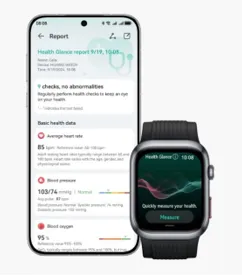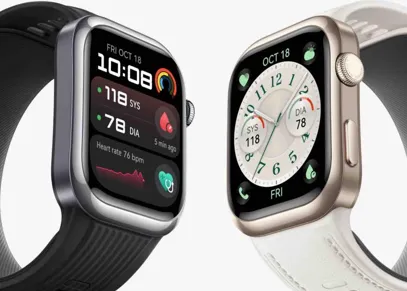Smartwatches have become indispensable tools in modern health management. These devices, once regarded primarily as stylish accessories, now offer robust functionalities that extend well beyond telling time. From tracking physical activity to monitoring vital health metrics, smartwatches empower individuals to take control of their well-being with unprecedented ease. As health consciousness grows globally, people are turning to technology for actionable insights into their physical and mental wellness. Smartwatches bridge the gap between complex medical monitoring and everyday health awareness. With their ability to provide real-time data, offer personalized feedback, and promote healthier lifestyles, these gadgets are transforming how we approach health and wellness in daily life.
Real-Time Health Monitoring for Better Decision-Making
Continuous Tracking of Vital Signs
One of the most remarkable advancements in smartwatches is their ability to continuously track vital signs, offering real-time insights into one’s health. Devices like the HUAWEI Watch D2 have set a new standard with their powerful health management features. This smartwatch provides dynamic blood pressure measurement, enabling users to monitor fluctuating blood pressure readings 24/7, whether they’re working, relaxing, or even sleeping. Such functionality is invaluable for individuals managing hypertension or those curious about their cardiovascular health. With average systolic and diastolic blood pressure values calculated over days or weeks, users can better understand patterns and take informed steps toward improvement. Additionally, features like ECG analysis and SpO₂ monitoring ensure comprehensive tracking, making smartwatches indispensable for maintaining awareness of one’s overall health.

Early Detection of Health Issues
Real-time monitoring also plays a crucial role in the early detection of potential health issues. Smartwatches equipped with advanced sensors can identify abnormalities in heart rate, oxygen saturation, or sleep patterns that may indicate underlying health concerns. For instance, irregularities in ECG signals detected by the HUAWEI Watch D2 could point to early signs of heart disease, allowing users to seek timely medical attention. These early alerts can make a significant difference in outcomes for conditions that require prompt intervention. By acting as a constant health companion, smartwatches encourage users to prioritize their well-being and respond proactively to warning signs that might otherwise go unnoticed.
Encouraging Proactive Health Habits
Goal Setting and Activity Tracking
Smartwatches are excellent tools for fostering healthier lifestyles through goal setting and activity tracking. They enable users to set personalized objectives, such as achieving a daily step count, burning a specific number of calories, or completing regular exercise sessions. By tracking activities in real-time and displaying progress throughout the day, these devices keep users motivated and accountable. Many smartwatches provide visual feedback, such as activity rings or charts, that encourage users to maintain consistency. Over time, these small achievements build up, promoting long-term adherence to healthier habits and increasing overall physical activity levels.
Alerts and Reminders for Healthy Routines
For those with busy schedules, smartwatches serve as gentle nudges to stay on track with healthy routines. These devices can send reminders for activities like drinking water, taking breaks from prolonged sitting, or engaging in mindfulness exercises. Reminders are often customizable, allowing users to align notifications with their specific health goals. For instance, a smartwatch might prompt a user to take a brisk walk after detecting inactivity for an extended period or suggest breathing exercises during moments of stress. By seamlessly integrating wellness reminders into daily life, smartwatches empower individuals to maintain balance and prioritize self-care.
Personalized Health Insights Through Advanced Technology
AI-Driven Recommendations Based on Health Data
Smartwatches harness the power of AI to deliver personalized recommendations based on individual health data. These devices analyze patterns from activity levels, heart rate, sleep cycles, and other metrics to suggest actionable improvements. For example, if a smartwatch detects irregular sleep patterns, it might recommend earlier bedtimes or relaxation techniques to enhance sleep quality. Similarly, users who struggle to meet their fitness goals may receive tailored exercise suggestions or motivational tips. This level of personalization ensures that the feedback is relevant and achievable, making it easier for individuals to adopt healthier behaviors.
Tailored Wellness Plans and Feedback
Beyond daily recommendations, many smartwatches provide tailored wellness plans designed to address specific health concerns. Paired apps, like the HUAWEI Health App, enhance this experience by offering guided workouts, meditation sessions, and breathing exercises. Users can customize these plans to focus on areas such as weight management, stress reduction, or cardiovascular health. Weekly reports generated by smartwatches help users track progress and refine their wellness strategies. These insights foster a deeper understanding of personal health trends, empowering individuals to make informed decisions about their habits and routines.
Integrating with Broader Healthcare Systems
Sharing Data with Healthcare Providers
Smartwatches not only benefit individuals but also play a pivotal role in modern healthcare systems. By collecting comprehensive health data, these devices enable users to share accurate and detailed information with healthcare providers. For instance, patients managing chronic conditions can use smartwatch data to provide their doctors with a clearer picture of their day-to-day health. Information such as heart rate variability, blood pressure trends, and activity levels offers valuable context for medical evaluations. This seamless data sharing fosters better communication between patients and providers, improving diagnosis accuracy and treatment effectiveness.
Enhancing Telemedicine and Remote Consultations
The rise of telemedicine has further highlighted the importance of wearable health technology. Smartwatches support remote consultations by supplying real-time data that doctors can analyze during virtual appointments. Features like continuous blood pressure tracking or ECG monitoring provide clinicians with the insights needed to make informed decisions without requiring an in-person visit. This integration enhances accessibility to healthcare, particularly for individuals in remote or underserved areas. By bridging the gap between technology and medical care, smartwatches contribute to a more connected and efficient healthcare system.
Conclusion
Smartwatches have revolutionized how we approach health management, blending advanced technology with everyday convenience. Devices like the HUAWEI Watch D2 demonstrate the power of wearable technology to monitor vital signs, detect potential health issues, and encourage proactive habits. From tracking fluctuating blood pressure readings to offering personalized wellness plans, these tools empower individuals to take control of their well-being. As healthcare continues to evolve, smartwatches will remain at the forefront, transforming lives through real-time insights and seamless integration with broader medical systems. For anyone seeking to prioritize their health in a busy world, a smartwatch is no longer a luxury—it’s an essential companion for modern living.
